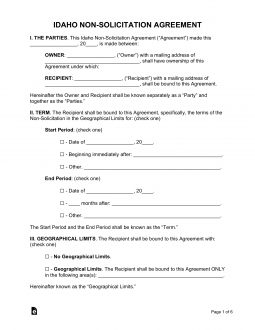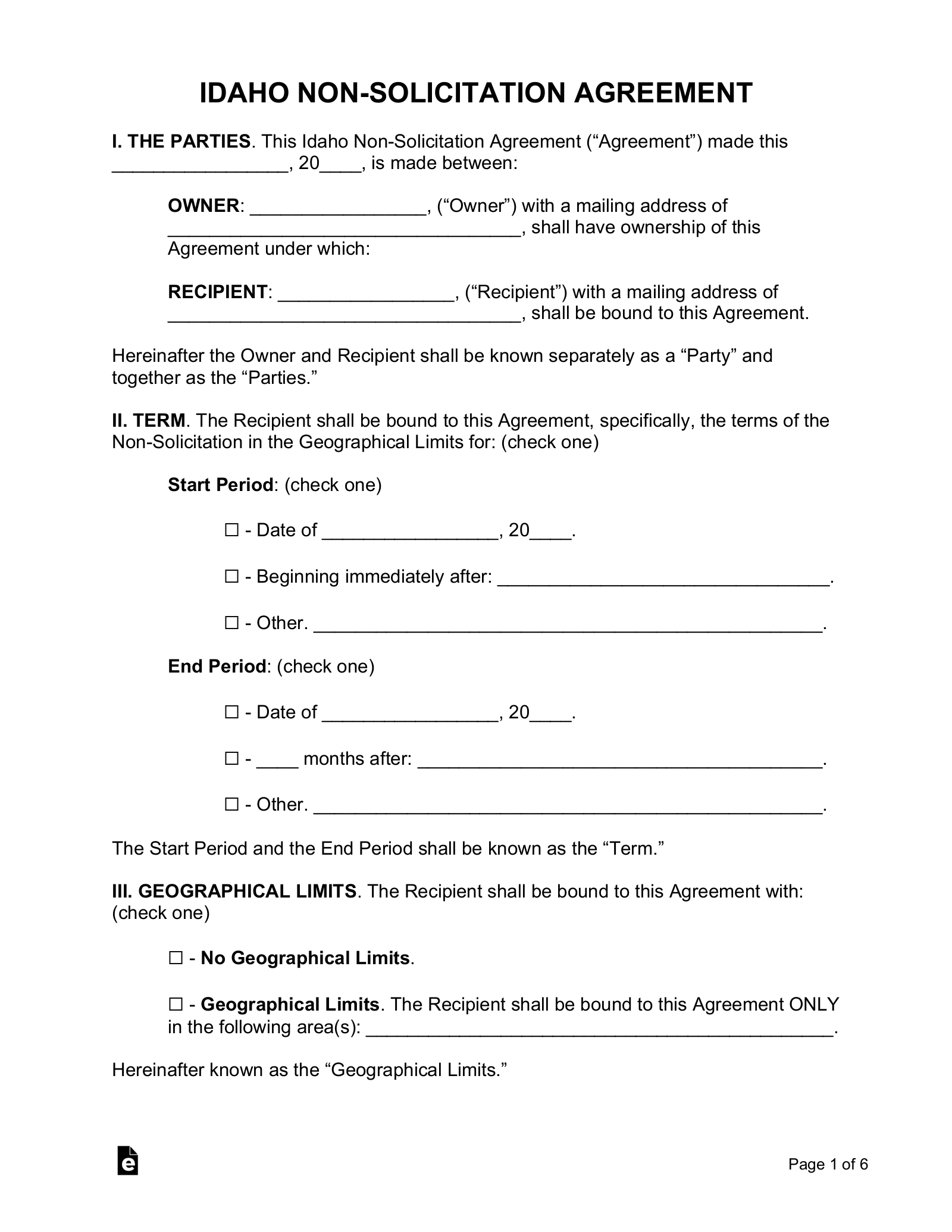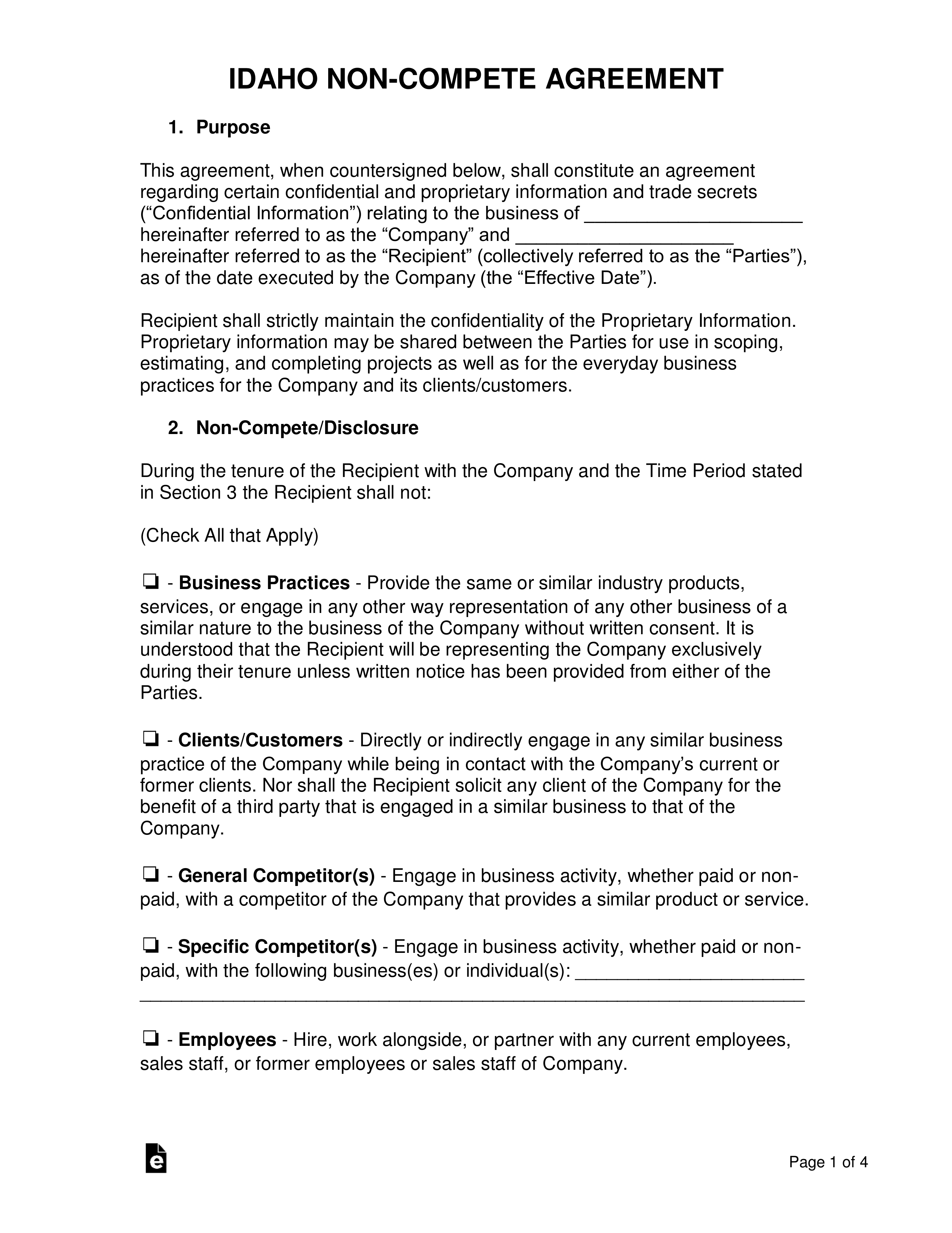Updated April 22, 2024
An Idaho non-solicitation agreement is a contract between a company and an employee that limits the employee’s activities after leaving the company. The agreements can forbid the employee from soliciting the company’s clients, customers, employees, and contractors for their own benefit or on behalf of another company.
Is It Legally Enforceable in Idaho?
Yes. A key employee or independent contractor may enter into an agreement or covenant that protects the employer’s legitimate business interests and prohibits them from seeking work that is in direct competition with the employer’s business after termination.[1]
Agreements may not:[2]
- Impose restrictions greater than necessary to protect a legitimate business interest
- Be unduly harsh or restrictive to the employee
- Be injurious to the public
Table of Contents |
What Types of Solicitation Can Be Prohibited?
Under a non-solicitation agreement, an individual can be barred from reaching out to their employer’s:
- Former or current employees
- Former or current customers/clients
- Independent contractors
- Other business affiliates
What Should Be Included in the Agreement?
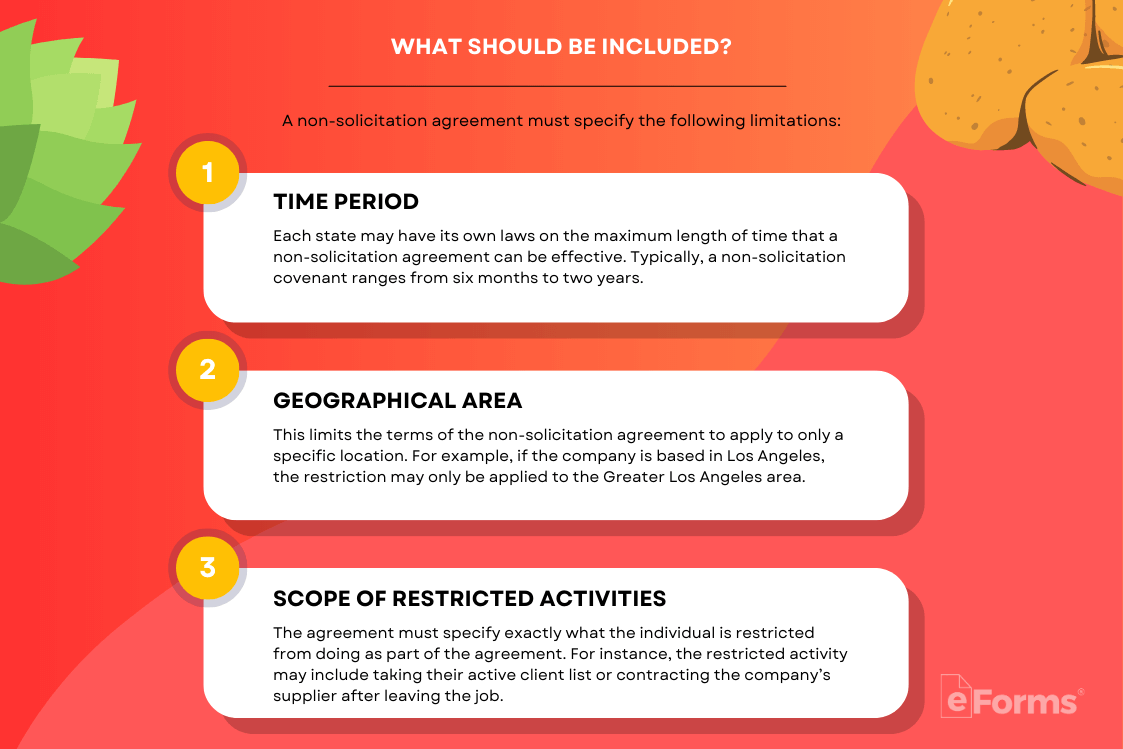
In order to ensure that a non-solicitation covenant is enforceable in an Idaho court of law, the restrictions must be considered necessary with regard to:
1. Time Restraint
While Idaho statutes or case law do not specify the maximum duration allowed for a non-solicitation covenant, the set length of time specified in the agreement must be considered necessary to protect a legitimate business interest of the employer.
2. Geographical Limit
The agreement must specify the location or geographical area where the individual is not allowed to engage in the restricted activities.
3. Scope of Restricted Activities
This section provides a detailed outline of what the individual is prohibited from doing, whether that’s soliciting any and all employees and clients or specific parties.
Related Forms
Download: PDF, MS Word, OpenDocument
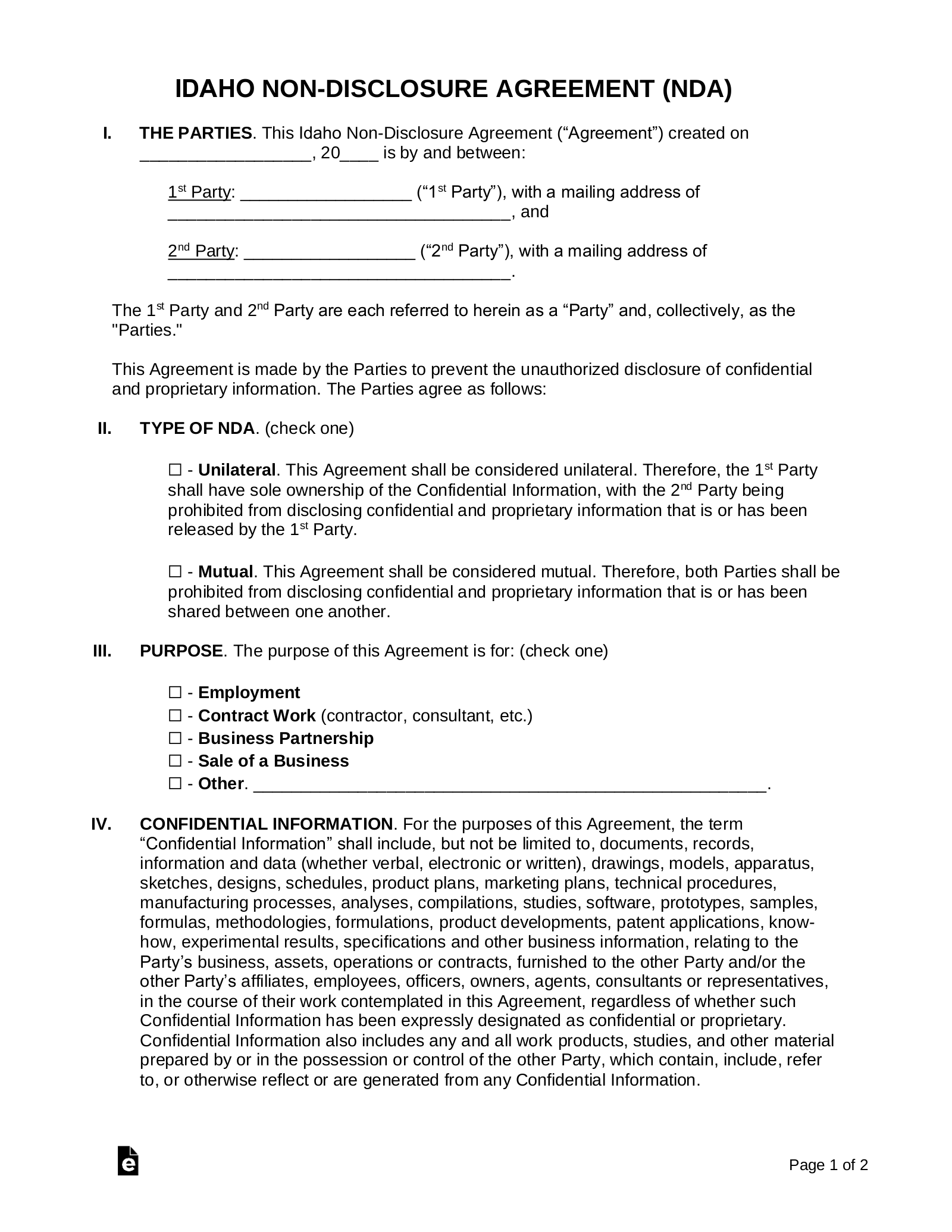 Idaho Non-Disclosure Agreement
Idaho Non-Disclosure Agreement
Download: PDF, MS Word, OpenDocument

